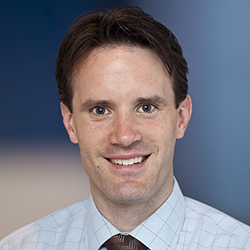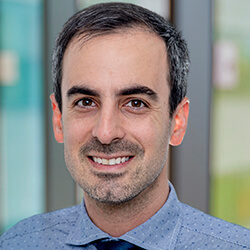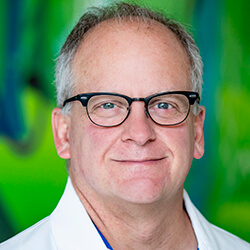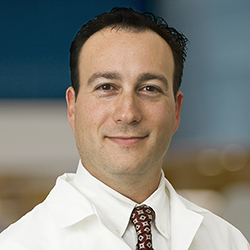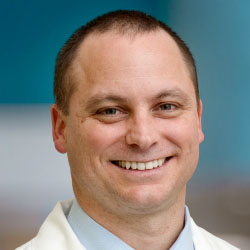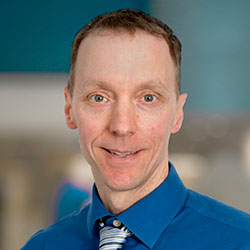Cardiac Catheterization Procedures
Contact the Heart Center
What is cardiac catheterization?
Cardiac catheterization is a procedure where a specially trained heart doctor (cardiologist) inserts small plastic tubes (catheters) into veins and arteries to diagnose or treat a heart condition. The doctor guides the catheters to the right places using X-ray and ultrasound images. At Seattle Children’s, we do this in our state-of-the-art cardiac catheterization laboratories.
Diagnosis using catheterization
Diagnostic catheterizations help doctors decide the best way to treat complex conditions. The details that doctors gather during the procedure help them plan the best timing for heart surgery, the steps of the operation itself and the care a child will need after.
Doctors also use catheterization to diagnose heart rhythm problems. These specialized procedures are called electrophysiology (EP) studies. EP studies allow doctors to map the electrical pathways in the heart to find the cause of an arrhythmia.
Treatment using catheterization
Some children’s heart conditions can be treated with interventional catheterization instead of open-heart surgery. Children have less pain and recover faster with catheterization procedures than with surgery for the same conditions. Often, children can go home the same day or the next morning.
Conditions we treat in the catheterization lab include:
- Aortic stenosis
- Arrhythmias
- Atrial septal defect (ASD)
- Coarctation of the aorta
- Patent ductus arteriosus (PDA)
- Pulmonary atresia
- Pulmonary stenosis
- Ventricular septal defect
Catheters can be used to open narrow blood vessels and heart valves with a balloon or stent (like in aortic stenosis or coarctation of the aorta) or to treat an arrhythmia through radiofrequency ablation or cryoablation. They can also be used to replace heart valves, close abnormal blood vessels or close holes in the wall between heart chambers with transcatheter devices. Procedures to place transcatheter devices include:
- Transcatheter ASD closure. Interventional cardiologists at Seattle Children’s took part in early clinical trials of devices to close an atrial septal defect (a hole between the 2 upper chambers of the heart) without open-heart surgery. We have been doing transcatheter ASD closures for more than 20 years. More recently, our team has been part of a trial of a new type of device (reSept ASD Occluder). The device slowly dissolves in the body over about 2 years while still closing the ASD with cloth patches. This promising new technology is only available in a small number of hospitals around the country, including Seattle Children’s.
- Transcatheter PDA closure. Patent ductus arteriosus is a common congenital condition in which a blood vessel near the heart stays open instead of closing within a few days after birth. If needed, doctors can usually close the vessel with catheterization. At Seattle Children’s, we often do this as a day procedure (no need to stay overnight). However, some children may need surgery. In 2019, a new transcatheter device (Piccolo Occluder) was approved by the U.S. Food and Drug Administration for PDA closure in small, premature infants. The device lets us treat delicate babies without putting them through surgery. Seattle Children’s was 1 of the first hospitals to use this new technology, and we took part in clinical trials to get it approved.
- Transcatheter PDA stenting. For babies with certain congenital heart conditions, it’s important to keep the PDA open so blood can get to the lungs or the rest of the body. An interventional cardiologist can do this by placing a stent in the ductus arteriosus. Seattle Children’s did some of the earliest studies showing that PDA stenting is a better option for most babies than open surgery to reroute blood flow with a Blalock-Thomas-Taussig (BTT) shunt. We were among the first hospitals in the country to begin using PDA stents, and we have many years of experience with this delicate procedure.
- Transcatheter pulmonary valve replacement. For many years, open-heart surgery was the only way to replace a pulmonary valve that did not open or close well. With the development of new heart valves, we can now replace valves with minimally invasive catheterization. Our catheterization lab and Adult Congenital Heart Disease Program, shared with the University of Washington (UW), have an advanced transcatheter pulmonary valve replacement program. Many families come to us for this treatment. Seattle Children’s and UW have been part of almost all major clinical trials of new implantable heart valves over the last 15 years. We use 4 types of transcatheter valves (Melody, Harmony, SAPIEN and Alterra) to replace the pulmonary valve in a wide range of children with excellent outcomes.
Learn more about what to expect with a cardiac catheterization.
What’s special about the experience at Seattle Children’s?
-
Leaders in pediatric catheterization
- Seattle Children’s cardiologists are leaders in providing safe and effective diagnostic and interventional catheterization and electrophysiology (EP) procedures for newborns, children and adolescents.
- We use new techniques and innovative devices to help hundreds of children each year avoid open-heart surgery. For example, our doctors were among the first in the country to use catheterization to replace heart valves in children.
- Our pediatric cardiac anesthesia team has special training in giving anesthesia to children with heart problems to keep them safe and comfortable during and after their procedure.
- Your child’s team includes other experts from Seattle Children’s based on their needs, like doctors who specialize in newborns (neonatologists) or lung health (pulmonologists).
-
Advanced technology and methods
- The cardiac catheterization team provides care in 2 dedicated catheterization labs. Both have the latest technology to support the best care for your child.
- We use technology that provides the highest level of image clarity, including 3D imaging. This gives our doctors the clearest picture possible of your child’s heart. Clear imaging helps make your child’s procedure safer.
- Our imaging equipment is designed to image as “gently” as possible. It greatly lowers radiation exposure — by up to 75% over other kinds of catheterization equipment. This is most important for children who may need many procedures over their lifetime.
- In our labs, children can have a hybrid heart procedure. In this approach, cardiologists and cardiac surgeons work together to treat complex heart problems using both catheterization and surgery. This can be lifesaving for babies who are too sick to go through open-heart surgery or too small for typical treatments using catheters.
-
Care from before birth into adulthood
- If your developing baby is diagnosed with a heart problem before birth, Seattle Children’s Fetal Care and Treatment Center team works closely with you and your family to plan and prepare for any care your baby may need, including cardiac catheterization procedures.
- Your team at Seattle Children’s will create a treatment plan that matches your child’s exact needs. Your child’s catheterization procedure and the other services they receive will depend on many factors. These include your child’s overall health, their size, their heart condition, the effects on the rest of their body and other treatments they are likely to need.
- Some of our patients keep seeing the Heart Center team at Seattle Children’s even after they become young adults. This is important because some patients still need care from experts in heart problems that start in childhood.
- We work closely with doctors at UW Medicine when our patients are ready to move into care with doctors who treat adults. Our special Adult Congenital Heart Disease Program, shared with the University of Washington, focuses on the long-term healthcare needs of people born with a heart condition.
-
Support for your whole family
- Whatever types of care your child needs, we will help your family through this experience. We will discuss your child’s condition and treatment options in ways you understand and involve you in every decision.
- Many of our Heart Center patients come from outside the Seattle area. We know you may be away from your home, community and usual support systems while dealing with your child’s illness. We are here to help meet the needs of you and your whole family during this time.
- Our Child Life specialists know how to help children understand their illnesses and treatments in ways that make sense for their age.
- Seattle Children’s has many resources, from financial to spiritual, to support your child and your family and make the journey as smooth as possible.
- Read more about the supportive care we offer.
-
Research to improve outcomes
- Our doctors partner with biotechnology companies to develop safer and less invasive treatments for children of any age, even newborns. Because of our role in research, we can often give children access to devices that are not available everywhere.
- For more than 30 years, the team has been active in clinical trials testing new devices and treatments that may further reduce the risk and discomfort of treatment for children with congenital heart disease.
- We have taken part in important studies of devices like the SAPIEN and Melody transcatheter heart valves (to replace a heart valve without open-heart surgery) and the Piccolo Occluder (to close a patent ductus arteriosus).
- We are also involved in studies of medicines to prevent excess blood clotting in children who have cardiac catheterization, making these procedures even safer.
- Learn more about our research on mechanical heart devices, including transcatheter devices.
Scheduling an Appointment With the Heart Center
- If you would like a referral for Seattle Children’s Heart Center, talk to your child’s primary care provider.
- How to schedule an appointment at Seattle Children’s.
- If you already have an appointment, learn more about how to prepare.
- Before your child’s cardiac catheterization, you may be offered a telehealth (virtual) visit to meet the interventional cardiologist, discuss your child’s procedure and ask questions.
- Learn about Heart Center resources such as useful links, videos and recommended reading for you and your family.
Who’s on the team?
Seattle Children’s has a highly specialized team who perform cardiac catheterization procedures. They work with the rest of the Heart Center staff, including other cardiologists, pediatric cardiac surgeons, cardiac nurses, radiology technicians and cardiac anesthesiologists. The team also works with pediatric and adult cardiologists from all over the Northwest.
Leadership
-
Director, Cardiac Catheterization Laboratories; Attending Physician
Contact Us
Contact the Heart Center at 206-987-2515 for a referral, a second opinion or more information.
Providers, see how to refer a patient.
Related Links
Telemedicine at Seattle Children’s
Your child’s first appointment in our clinic will be in person and take about 90 minutes. Later visits may be offered via telehealth (virtual). Learn more about telemedicine at Seattle Children’s.
Paying for Care
Learn about paying for care at Seattle Children’s, including insurance coverage, billing and financial assistance.
